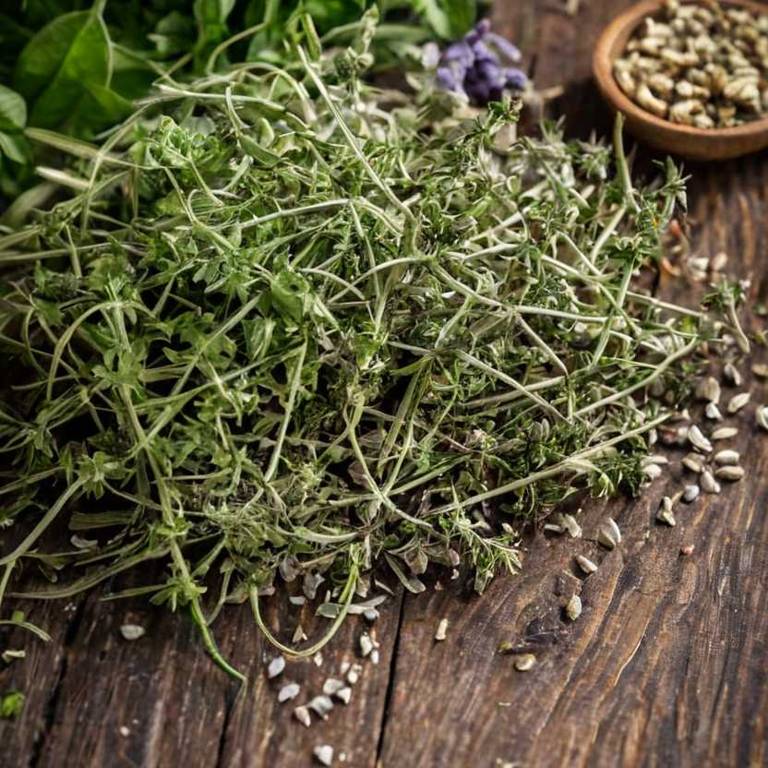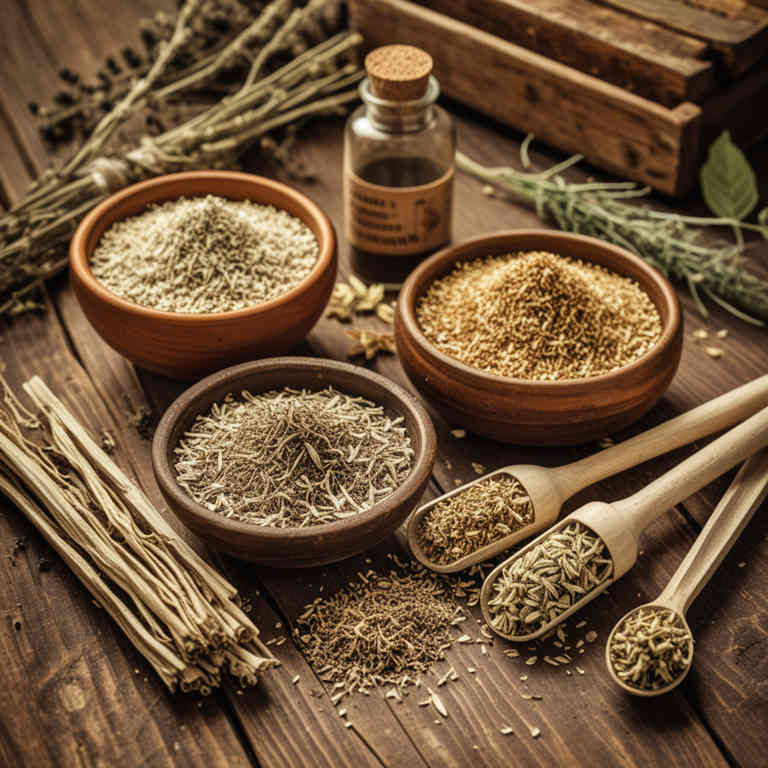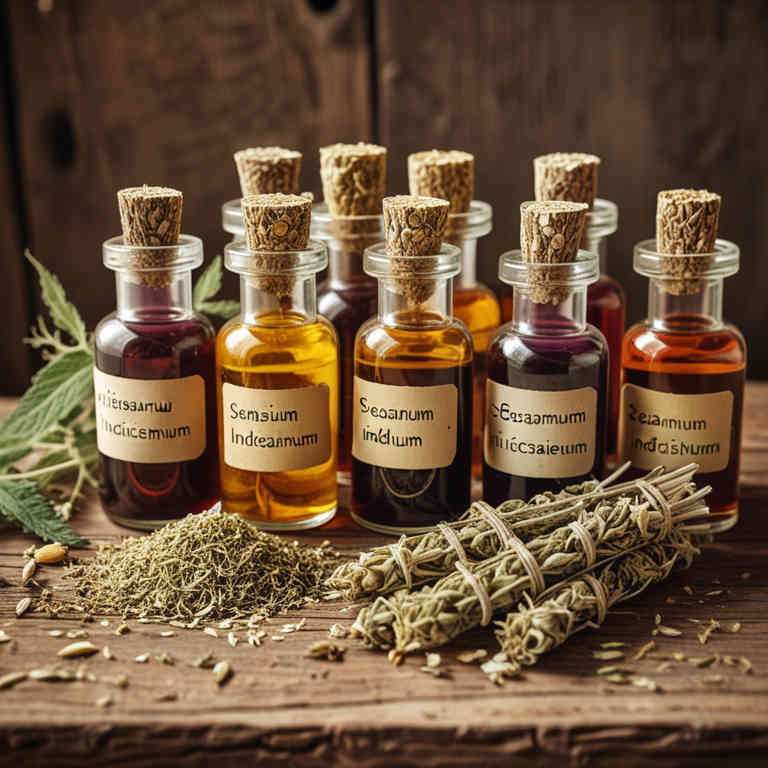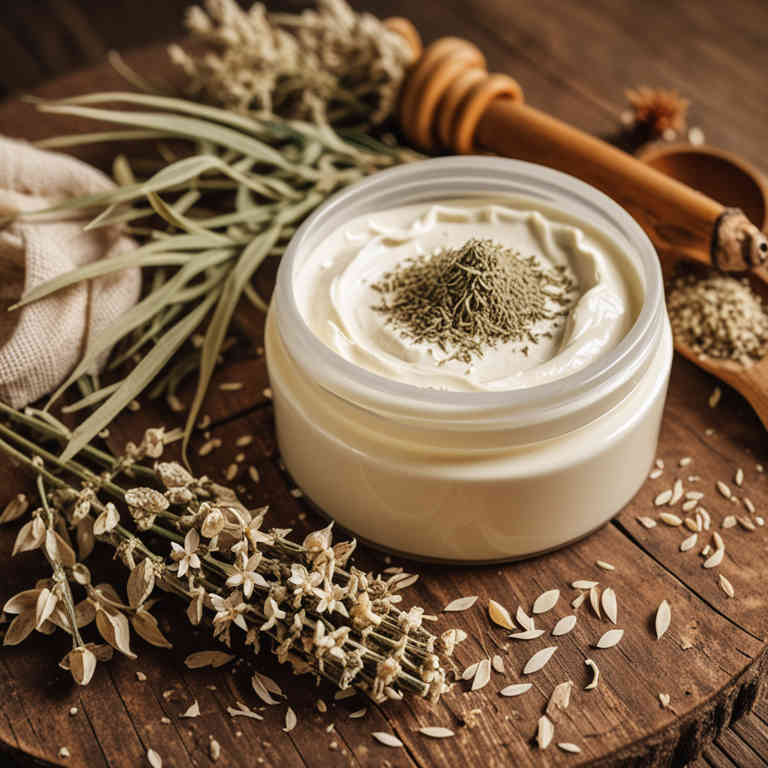10 Best Sesamum Indicum Preparations

The best medicinal preparations of Sesamum indicum are teas, decoctions, oils, tinctures, and creams, each offering unique therapeutic benefits.
Sesamum indicum tea is commonly used to support digestion and reduce inflammation.
Decoctions involve simmering the seeds to extract their essential compounds, often used for skin conditions and respiratory health.
Cold-pressed sesame oil is valued for its moisturizing and anti-inflammatory properties.
Tinctures made from the herb provide concentrated herbal extracts for internal use.
Creams infused with sesame oil are popular for their soothing effects on the skin.
Below there's a list of the 10 best herbal preparations of sesamum indicum for medicinal purposes.
1. Teas
Sesamum indicum teas is commonly used to support digestive health, reduce inflammation, and promote overall wellness.
The most common medicinal uses of this herbal preparation include treating digestive disorders such as constipation, irritable bowel syndrome, and gastritis, as well as alleviating symptoms of respiratory conditions like coughs and bronchitis. It is also used to manage stress, improve skin health, and support cardiovascular function. The bioactive constituents responsible for its medicinal properties include sesamin, sesamolin, lignans, flavonoids, and essential oils, which have antioxidant, anti-inflammatory, and antimicrobial effects.
These compounds contribute to the plant's ability to support various bodily functions and provide therapeutic benefits.

2. Decoctions
Sesamum indicum decoctions is commonly used to treat digestive issues, inflammation, and respiratory conditions.
These decoctions are often prepared by boiling the seeds in water to extract their active components. The most common medicinal uses include alleviating constipation, reducing inflammation in the respiratory tract, and managing skin disorders. Bioactive constituents such as sesamin, sesamolin, and lignans are responsible for the anti-inflammatory, antioxidant, and antimicrobial properties of the decoctions.
These compounds contribute to the overall therapeutic effects observed in traditional and modern medicinal applications.

3. Oils
Sesamum indicum oils is commonly used to treat a variety of health conditions, including skin disorders, digestive issues, and inflammation.
These oils are widely utilized in traditional medicine for their soothing and healing properties. The most common medicinal uses include alleviating symptoms of eczema, reducing inflammation in arthritis, and promoting digestive health. Bioactive constituents such as sesamol, sesamin, and lignans contribute to its antioxidant, anti-inflammatory, and antimicrobial effects.
These compounds help protect cells from oxidative stress and support overall wellness.

4. Tinctures
Sesamum indicum tinctures is commonly used to treat a variety of ailments including inflammation, digestive issues, and skin conditions.
These tinctures are often utilized for their anti-inflammatory, antimicrobial, and antioxidant properties. The most common medicinal uses include alleviating symptoms of arthritis, reducing gastrointestinal discomfort, and promoting wound healing. The bioactive constituents responsible for these effects include sesamol, sesamin, and lignans, which contribute to the plant's therapeutic value.
These compounds help reduce oxidative stress and inflammation, making sesamum indicum tinctures a valuable herbal remedy in traditional and modern medicine.

5. Creams
Sesamum indicum creams is commonly used to treat skin conditions, reduce inflammation, and promote wound healing.
These creams are widely utilized for their soothing and protective properties, making them effective for treating eczema, psoriasis, and minor burns. The most common medicinal uses include alleviating skin irritation, moisturizing dry skin, and providing relief from itching and inflammation. The bioactive constituents responsible for these effects include sesamol, sesamin, and lignans, which possess antioxidant, anti-inflammatory, and antimicrobial properties.
These compounds contribute to the therapeutic benefits of Sesamum indicum creams in various health applications.

6. Capsules
Sesamum indicum capsules is commonly used to support digestive health, reduce inflammation, and promote cardiovascular wellness.
These capsules are widely utilized to treat ailments such as constipation, gastrointestinal disorders, and high cholesterol. The bioactive constituents responsible for these medicinal properties include sesamin, sesamolin, lignans, and various antioxidants. Additionally, they may contain essential fatty acids and minerals that contribute to their therapeutic effects.
Sesamum indicum capsules are also believed to aid in managing oxidative stress and improving overall immune function.

7. Oinments
Sesamum indicum oinments is commonly used to treat skin conditions, joint pain, and inflammation due to their soothing and anti-inflammatory properties.
These oinments are often applied topically to alleviate symptoms of eczema, psoriasis, arthritis, and muscle aches. The most common medicinal uses include reducing inflammation, promoting skin healing, and providing relief from minor burns and wounds. The bioactive constituents responsible for these effects include sesamol, sesamin, and lignans, which have antioxidant, anti-inflammatory, and antimicrobial properties.
These compounds work synergistically to enhance the therapeutic benefits of the oinment.

9. Syrups
Sesamum indicum syrups is commonly used to alleviate respiratory conditions, digestive issues, and skin disorders.
This herbal preparation is often employed to treat coughs, bronchitis, gastrointestinal inflammation, and minor skin irritations. The therapeutic effects are attributed to its bioactive constituents, which include sesamin, sesamolin, and various antioxidants. These compounds possess anti-inflammatory, antimicrobial, and antioxidant properties.
Additionally, sesamum indicum syrups may support cardiovascular health and aid in reducing oxidative stress in the body.

10. Mucillages
Sesamum indicum mucillages is commonly used to treat digestive disorders, inflammation, and skin conditions.
The mucillages, which are thick, gel-like substances, are extracted from the seeds of the sesame plant and have been traditionally used in Ayurvedic and Chinese medicine. They are most commonly used to alleviate symptoms of constipation, reduce inflammation in the gastrointestinal tract, and promote wound healing. The bioactive constituents responsible for these effects include polysaccharides, flavonoids, and phenolic compounds, which exhibit anti-inflammatory, antimicrobial, and antioxidant properties.
These compounds help in soothing the digestive system, protecting against oxidative stress, and supporting immune function.
